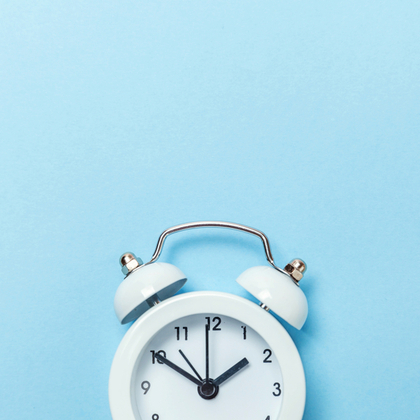
We’ve all experienced a bad night’s sleep and felt the effects the next day. More often than not, we can restore balance and feel refreshed by ensuring we get adequate rest the following night. For some, however, poor sleep is a common occurrence, no matter how hard they try.
If you regularly have trouble falling asleep or wake multiple times during the night, it might signal an undiagnosed sleep disorder. Here, we examine the causes, symptoms, and treatments of the five main sleep disorders that risk compromising your body’s natural ability to rest.
What are the five main sleep disorders?
Insomnia
If you suffer from insomnia, you experience problems falling asleep or staying asleep throughout the night. There are different types of insomnia — acute or chronic.
The most common causes of insomnia include mood disturbances – anxiety, stress, or depression – alcohol, caffeine, nicotine, recreational drugs, jet lag, or shift work. Sleeping in a noisy, cold, and light environment may also trigger insomnia.
Symptoms
If you regularly experience the following symptoms, you may have insomnia:1
-
Find it difficult to fall asleep
-
Lie awake at night
-
Rouse several times during the night
-
Wake up early and can’t get back to sleep
-
Feel tired and lethargic after waking up
-
Feel irritable and groggy all-day
-
Struggle to concentrate during the day due to tiredness
-
Find it difficult to nap during the day despite feeling exhausted
Reassuringly, you can improve insomnia by changing your lifestyle and sleeping habits. Relaxation and mindfulness-based techniques and behavioural techniques, like cognitive behavioural therapy or sleep restriction therapy, are especially helpful at easing the body into sleep. Ensuring you get plenty of exercise during the day, and limiting the consumption of foods that are known to disrupt sleep may also promote quality rest.
There’s no one-size-fits-all solution to managing insomnia. You have to find what works for you. Discover natural remedies to support the reduction of insomnia here.
Sleep apnoea
A relatively common condition, sleep apnoea occurs when the walls of the throat relax and narrow during sleep, which interrupts the flow of normal breathing. This can disrupt sleep and impact your quality of life.
Sleep apnoea can affect men and women of any age – even children may develop the condition. However, the following factors put you more at risk: being overweight, being male, being above 40 years old, having a large neck (upwards of 16 inches in women and 17 inches in men), experiencing nasal obstruction due to allergies, sinus problems, or a deviated septum, or having a family history of sleep apnoea.
Alcohol, smoking, and taking medication with a sedative effect are also known to contribute to the condition.
Symptoms
A family member, partner, or friend will usually notice the symptoms of sleep apnoea while you sleep, such as thunderous snoring or laboured and noisy breathing. If you also experience the following symptoms, it may further signal sleep apnoea2:
-
Waking up with a very dry or sore throat
-
Waking up with a gasping or choking sensation
-
Night sweats
Depending on the severity of your sleep apnoea, making simple lifestyle changes may be all you need to manage the condition. Losing weight and avoiding alcohol, sleeping pills, and smoking are some of the best measures to take. Sleeping in your side to improve airflow may also promote better sleep.
Nevertheless, if your sleep apnoea doesn’t improve with self-help strategies, please seek advice from your healthcare professional. For example, you may be advised to use a continuous positive airway pressure (CPAP) device or wear a mandibular advancement device (MAD). In some instances, surgery may be needed.
Narcolepsy
A rare, long-term brain condition, narcolepsy causes people to fall asleep suddenly at inappropriate times. Although this sleep disorder doesn’t have any serious long-lasting health problems, it can have a sizeable impact on daily life.
Several factors may increase the risk of developing narcolepsy, such as an inherited genetic fault, major psychological stress, hormonal changes, like puberty or menopause, infection, such as streptococcal infection or swine flu, or an unexpected change in sleeping patterns.
Symptoms
The symptoms of narcolepsy can develop rapidly in a few weeks or gradually over several months. These include:3
-
Excessive daytime sleepiness
-
Cataplexy – sudden temporary loss of muscular control or muscle weakness
-
Sleep attacks
-
Sleep paralysis – the inability to speak or move during waking or falling asleep
-
Memory problems
-
Hallucinations
-
Depression
There are currently no known cures for narcolepsy, but there are many things you can do to manage the symptoms and improve your quality of life. For example, taking regular, brief naps and sticking to a strict bedtime routine may improve your sleep hygiene. Avoiding caffeine, smoking, alcohol, vigorous exercise, and heavy meals before bed may also support the reduction of symptoms.
Alongside lifestyle changes, it’s important to consult your doctor. They may recommend certain stimulant medications, like sodium oxybate, or antidepressants.
You can learn more about the five signs of narcolepsy here..
Sleep paralysis
Sleep paralysis is characterised by the temporary inability to speak or move when falling asleep or waking up. Sometimes, it can be accompanied by hallucination. Although sleep paralysis can be a frightening experience, rest assured, it’s harmless and usually short-lived.
Sleep paralysis happens when periods of rapid eye movement (REM) sleep occur during wakefulness. Scientists are unsure why this phenomenon exists. Still, it has been linked to irregular sleeping patterns – often due to shift-work or jet lag – narcolepsy, sleep deprivation, insomnia, sleeping on your back, or a family history of sleep paralysis.
Symptoms
During an episode of sleep paralysis, you may experience the following symptoms:4
-
Being completely aware of your surroundings but unable to move or speak
-
Finding it difficult to inhale fully, as if your chest is restricted or being crushed
-
Feeling an ominous presence in the room with you
-
Feeling scared
Find out more about sleep paralysis here.
Improving your sleeping habits can reduce the likelihood of sleep paralysis. Try implementing a regular bedtime routine by going to bed and waking at the same time every day, even on weekends. Sleeping in a temperate, quiet, and dark environment and avoiding alcohol, caffeine, nicotine, or heavy meals before bed can also help. Regular exercise – especially relaxing activities, like yoga – is widely known to support healthy sleep hygiene.
REM sleep behaviour disorder
REM sleep disorder involves unusual behaviours or actions during the rapid eye movement stage of sleep. The root cause of this sleep disorder is still largely a mystery, but it has been associated with post-traumatic stress disorder and alcohol or drug withdrawal.
Symptoms
Someone with REM sleep behaviour disorder may exhibit the following behaviours:5
-
Screaming
-
Shouting
-
Talking
-
Lashing out physically
-
Cursing
-
Sleepwalking
-
Being able to recall dreams vividly
Treatment for REM sleep behaviour disorder is generally successful. Lifestyle changes, such as moving the bed away from any windows, keeping sharp objects and furniture out of the bedroom, and installing padded bed rails, can help manage symptoms. Medication may also reduce symptoms.
How can I fix my sleeping disorder?
Aside from making the lifestyle changes we’ve already outlined, always speak to a doctor if you suspect you may have any of the sleep disorders above, especially concerning sleep apnoea or narcolepsy. Please remember this guide isn’t a substitute for a formal medical diagnosis.
To learn more about supporting your sleep hygiene, explore our dedicated resources on sleep health.
References:
-
nhs.uk. (2019). Insomnia. Available online: https://www.nhs.uk/conditions/insomnia
-
nhs.uk. (2019). Obstructive Sleep Apnoea. Available online: https://www.nhs.uk/conditions/obstructive-sleep-apnoea
-
nhs.uk. (2019). Narcolepsy - Symptoms. Available online: https://www.nhs.uk/conditions/narcolepsy/symptoms
-
nhs.uk. (2019). Sleep Paralysis. Available online: https://www.nhs.uk/conditions/sleep-paralysis
-
Mayo Clinic. (2019). REM Sleep Behavior Disorder - Symptoms and Causes. Available online: https://www.mayoclinic.org/diseases-conditions/rem-sleep-behavior-disorder/symptoms-causes/syc-20352920
Related Posts

Olivia
Olivia Salter has always been an avid health nut. After graduating from the University of Bristol, she began working for a nutritional consultancy where she discovered her passion for all things wellness-related. There, she executed much of the company’s content marketing strategy and found her niche in health writing, publishing articles in Women’s Health, Mind Body Green, Thrive and Psychologies.
View More



